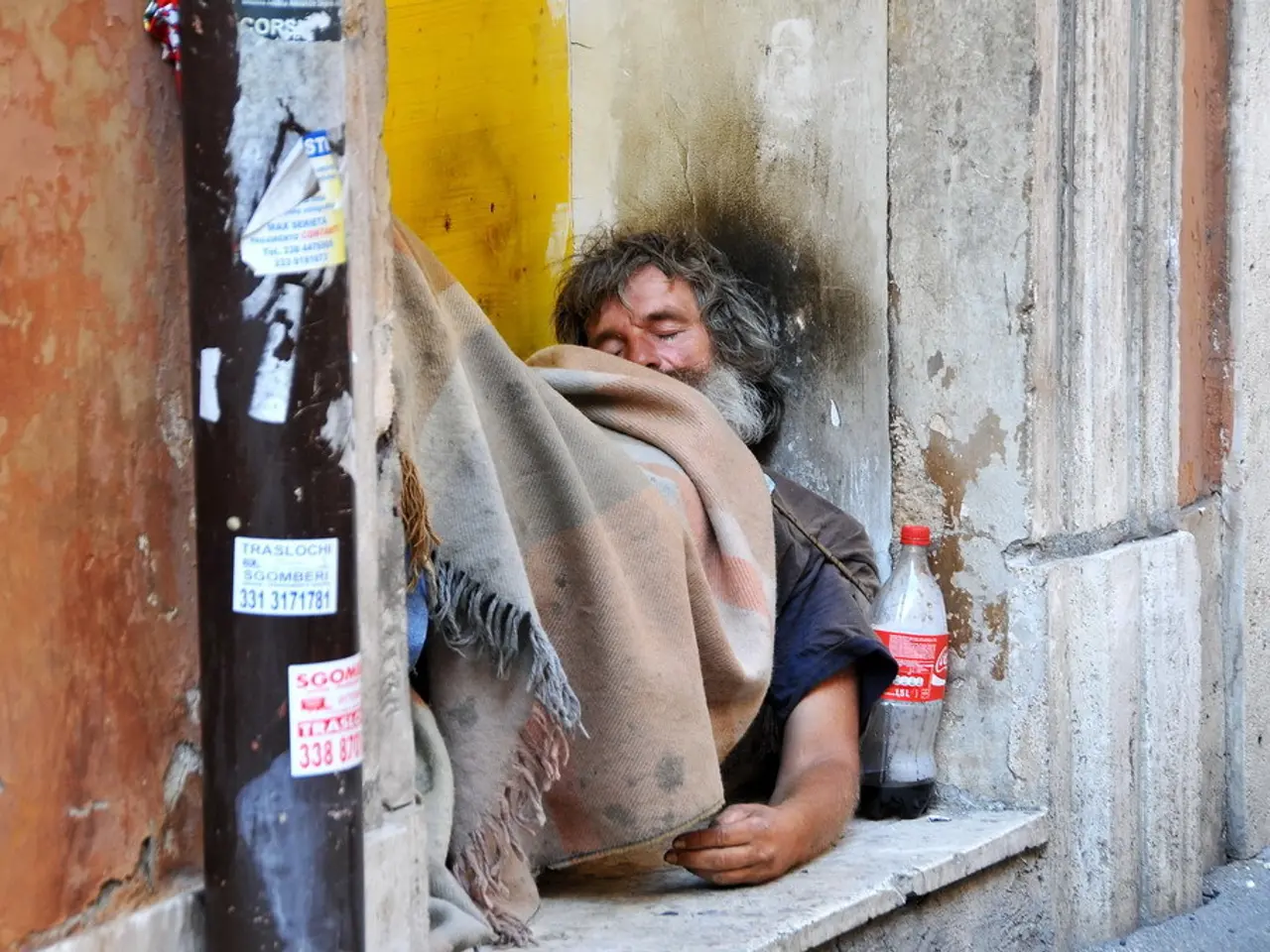Study suggests brief exposure to cold temperatures could improve sleep quality
In a groundbreaking study conducted at the University of Montreal and the University of Poitiers, scientists from Canada and France have explored the potential benefits of daily full-body "cryostimulation" for improving sleep quality. The findings, published in the December issue of the journal Cryobiology, suggest that cold therapy could be a viable treatment for those with sleep issues.
The study involved 9 women and 11 men, all in their twenties, who spent 5 minutes each day in a chamber chilled to -130 degrees Fahrenheit (-90 degrees C) as part of the research. The volunteers were tracked with wearables to monitor their heart rate, brain activity, and sleeping patterns.
The improvements in sleep observed in the study are modest, with an average increase of 7.3 minutes in deep sleep, also known as slow-wave sleep, which is critical for physical and mental recovery. The biggest change seen was with slow-wave sleep, the most rejuvenative phase of sleeping.
The change in sleep quality was only significant for the women, according to the researchers. However, the potential benefits of cryostimulation could be amplified for people with sleep problems, they added.
Olivier Dupuy, an associate professor at the University of Montreal's School of Kinesiology and Physical Activity Sciences, made a statement about the study. He mentioned that the study is part of a larger project by his team to examine the health benefits of cryostimulation. Dupuy's team plans to publish two other papers looking at how the therapy can affect sleep.
Cryotherapy activates the parasympathetic nervous system and lowers stress hormone levels such as cortisol, promoting relaxation conducive to improved sleep. This "reset" of the nervous system may reduce perceived pain and mental stress that otherwise interfere with sleep.
Cold exposure is also linked to overall reductions in chronic inflammation and pain, which can facilitate more restful sleep. While acute improvements are apparent, long-term effects on sleep require further investigation.
The benefits of cryostimulation are likely more pronounced in healthy individuals without contraindications such as certain cardiovascular conditions or pregnancy. The majority of rigorous studies focus on athletes or physically active populations, so applicability to the general population, including those with chronic sleep disorders, remains to be fully validated.
The researchers used MECOTEC's cryo air chamber for the study. The volunteers filled out surveys assessing their quality of sleep. Larger trials are needed to confirm the genuine boost from cryostimulation.
Other research has suggested that cryostimulation can potentially relieve certain kinds of pain and inflammation. Meta-analyses show that cold water immersion can boost sleep quality and overall well-being, with a noted drop in stress markers about 12 hours post-exposure, supporting better rest at night.
As the field of cryotherapy continues to grow, these findings contribute to the body of evidence supporting the potential benefits of cold therapy for improving sleep quality and duration.
- The groundbreaking study, as revealed by Olivier Dupuy from the University of Montreal, aims to explore the extensive health benefits of cryostimulation, with particular focus on sleep improvement.
- In the published December issue of Cryobiology, it's stated that the study found a significant increase in deep sleep, especially in women, after daily full-body cryostimulation.
- The study reports that cryostimulation could potentially help those suffering from sleep issues, as it activates the parasympathetic nervous system, reducing stress hormones and promoting relaxation.
- The researchers called for larger trials to confirm the genuine benefits of cryostimulation for sleep quality and duration, extending its applicability to a broader population, including individuals with chronic sleep disorders.




